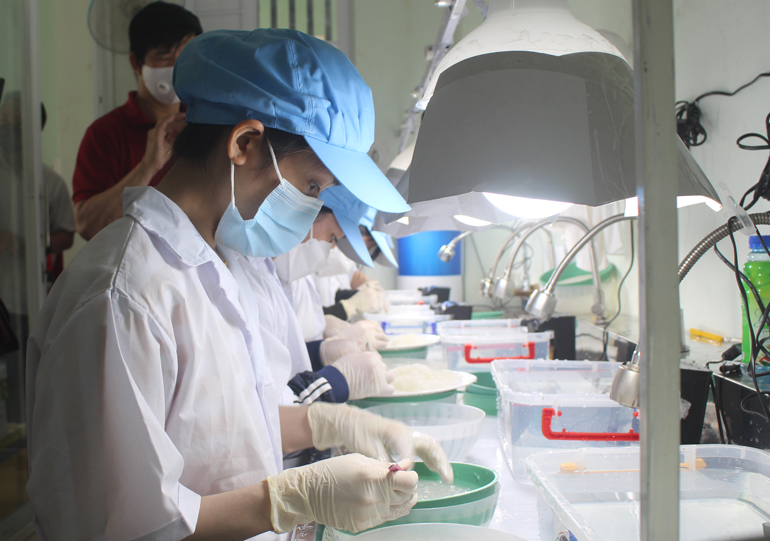 |
| Workers process bird's nests at a business in Tuy Hoa City. Photo: THUY TIEN |
At the end of 2022, the Protocol on exporting bird's nests to China was signed by the Ministry of Agriculture and Rural Development of Vietnam and the General Administration of Customs of China, officially bringing Vietnamese bird's nest products into the Chinese market through official channels. In order to fully meet the requirements from China, functional agencies, businesses and bird's nest owners have focused on implementing and perfecting many standards from management, attracting farming to processing and production.
Efforts to comply with regulations
In the current situation, when exporting bird's nest to China, businesses should divide the shipments into small batches, about 100kg/batch and can send consecutive batches; should not send too large a batch because the probability of risk will be very high when we cannot control the testing indicators according to the required protocol.
Mr. Pham Duy Khiem, Vice President of Vietnam Salanganes Nest Association, President of Phu Yen Salanganes Nest Association |
In order to participate in the bird's nest export chain to China, for nearly 2 years, Mr. Le Hoai Lam, owner of 2 bird's nest houses in Song Hinh district, has registered with the competent authority and been monitored for diseases, and given a bird's nest house identification code to ensure traceability.
Mr. Lam said: The protocol strictly regulates the processes from raising swiftlets to harvesting and transporting nests to processing enterprises. All stages are supervised by veterinary agencies.
The authorities took 16 samples from two birdhouses for testing each house with a total testing cost of more than 12 million VND/house. All samples met the requirements, so I signed a contract to supply raw bird's nests to Vietnam Quoc Yen Joint Stock Company, participating in the export chain.
Bird's nest house owners participating in the bird's nest export chain will be given specific instructions on disease prevention and control at their bird's nest houses, which helps to limit risks and avoid losses.
According to many birdhouse owners, since joining the export chain, the veterinary knowledge required by the central government and China has been continuously updated by the authorities, helping them adapt promptly to protect their birdhouses early, limiting errors in veterinary issues, leading to unfortunate events such as closing birdhouses, handling flocks of birds, etc.
Birdhouse owners are also guided on the process of caring for and maintaining birdhouses properly; trained on preserving and harvesting bird's nests to help the nests become more beautiful, whiter and larger, so the selling price is higher. In addition, when birdhouse owners sign contracts with processing and exporting enterprises, they will have their products consumed, so they do not have to worry about output...
Currently, Phu Yen has 3 bird nest farming areas including Tuy Hoa City, Dong Hoa Town, and Song Hinh District, which have been brought into the farming area to purchase raw materials with about 50 bird nest houses signing cooperation agreements to supply raw materials for bird nest export. These bird nest houses have been sampled and tested by the authorities to ensure requirements.
Bird's nest exporting businesses also have to comply with many Chinese regulations.
To date, the country has submitted more than 100 applications to Vietnamese authorities, and 45 applications have been reviewed and transferred to Chinese Customs. Of these, China has reviewed the applications of 7 companies and granted export quotas to these companies. To date, the companies have successfully exported their first batches of bird's nests to China. This is a very encouraging sign for the Vietnamese bird's nest industry.
Mr. Pham Duy Khiem, Vice President of Vietnam Salanganes Nest Association, President of Phu Yen Salanganes Nest Association said: To have the application reviewed and be granted an export code, the enterprise must ensure all conditions regarding the factory, equipment, workers, and production process according to Chinese regulations.
At that time, the authorities and China will review and if the requirements are met, they will be granted an export code and quota. Therefore, businesses wishing to participate in exporting bird's nests must contact the authorities to be guided according to the required procedures.
Active support
According to Chinese regulations, when a batch of bird's nest is exported, China will conduct on-site testing of 3 samples/batch. Of these, 3 important indicators that China will test and strictly control before allowing import include salmonella bacteria, H5N1 virus and aluminum bauxite. If 1 of these 3 samples is found to contain ingredients on the list of prohibited items in the regulations, the shipment will be suspended for resolution. Currently, Vietnam has not had any shipments that have failed to meet the standards.
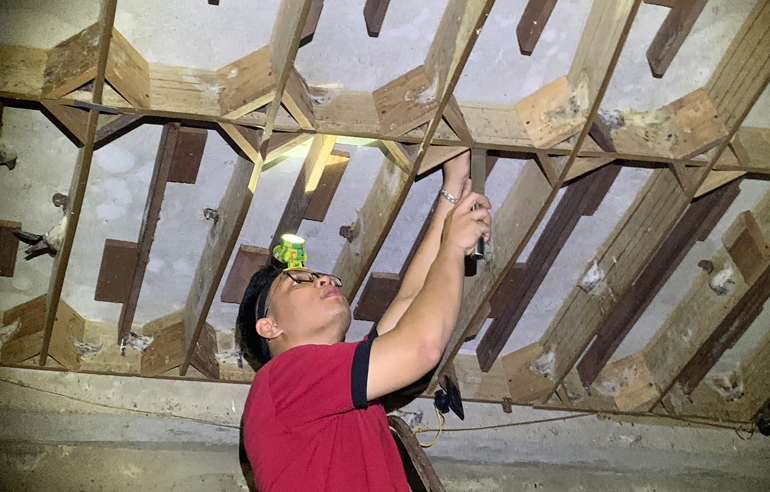 |
| Harvesting bird's nests at a bird's nest farm in Tuy Hoa City. Photo: THUY TIEN |
But according to the protocol, when samples are found to contain ingredients on the banned list, the entire shipment will be destroyed in China. This is the biggest concern of Vietnamese bird's nest exporting enterprises at present.
In particular, recently, a batch of Malaysian bird's nests imported into China was suspended and processed due to aluminum bauxite contamination, which made Vietnamese bird's nest exporting businesses even more insecure.
According to Vietnam Quoc Yen Joint Stock Company ( An Giang province), each batch of exported bird's nest is usually worth from 4 to 40 billion VND. Meanwhile, currently, the results of bird's nest testing at Vietnamese testing centers/institutes designated by the Ministry of Agriculture and Rural Development are not accepted by China, so it is not possible to control the required indicators of the batch before exporting.
Bird's nest exporting enterprises really hope that the authorities will soon work and negotiate with China to recognize the equivalent test results of testing centers/institutes between the two countries in the near future.
Recently, at the conference to disseminate regulations and commitments on food safety and animal and plant quarantine organized by the Vietnam National Information and Enquiry Point on Epidemiology and Animal and Plant Quarantine, a representative of the Vietnam Bird's Nest Association expressed his opinion on the issue of equivalent testing that the two countries will accept. Only then will export enterprises feel more secure when participating in the bird's nest export chain to China.
In addition, to support establishments and businesses to access the Chinese bird's nest consumption market trend, Phu Yen Bird's Nest Association has just organized a training course on advanced bird's nest processing for export with the participation of businesses from 7 provinces and cities.
Ms. Phan Thi Thuy Hong, owner of Hong Chau bird's nest house (Song Hinh district) said: During the 3 days of attending the training course, we practiced preparing bird's nests in a closed process, ensuring strict requirements on food safety and hygiene, and practiced making bird's nest samples according to the requirements of Chinese partners. The finished bird's nest samples instructed in the class have very beautiful designs. I will deploy them to the facility's workers to make new models to bring to the market.
Mr. Pham Duy Khiem said: In the coming time, the Vietnam Salanganes Nest Association and the Phu Yen Salanganes Nest Association will continue to organize training courses on veterinary hygiene and safety for birdhouses, food hygiene and safety in production for birdhouse owners and production facilities throughout the province; strengthen coordination to guide businesses on the registration process for participating in bird nest export.
| According to the Phu Yen Salanganes Nest Association, the province currently has more than 900 birdhouses with an output of about 2 tons/year. The province's birdhouses are gradually recovering, with an increase of about 30% compared to last year. The reason is that the bird's food area has been restored, the birdhouse protection committee and localities are actively preventing the trapping of birds... |
Narcissus
Source: https://baophuyen.vn/82/318031/san-sang-dua-to-yen-xuat-ngoai.html


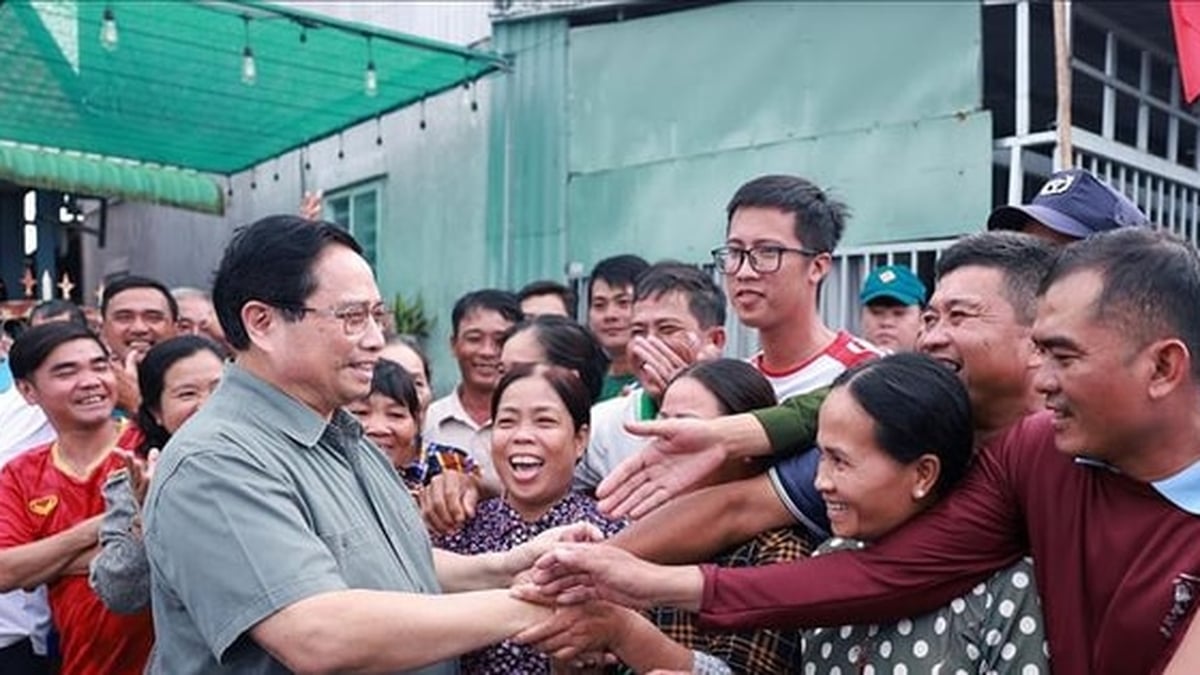
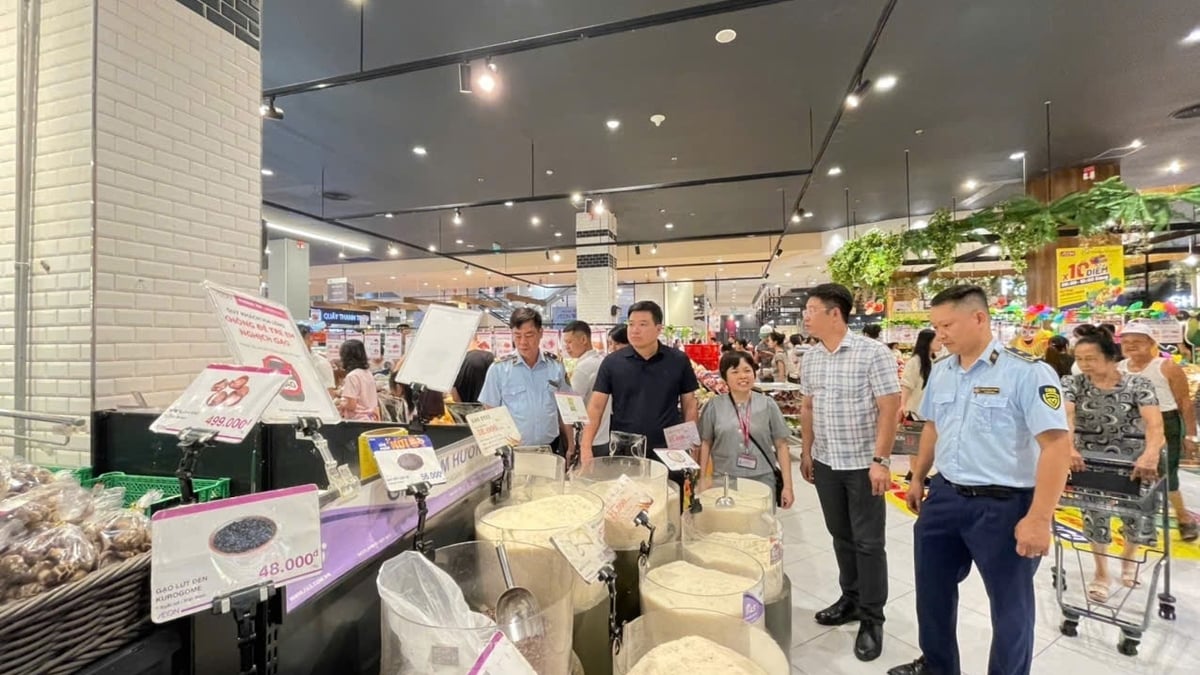


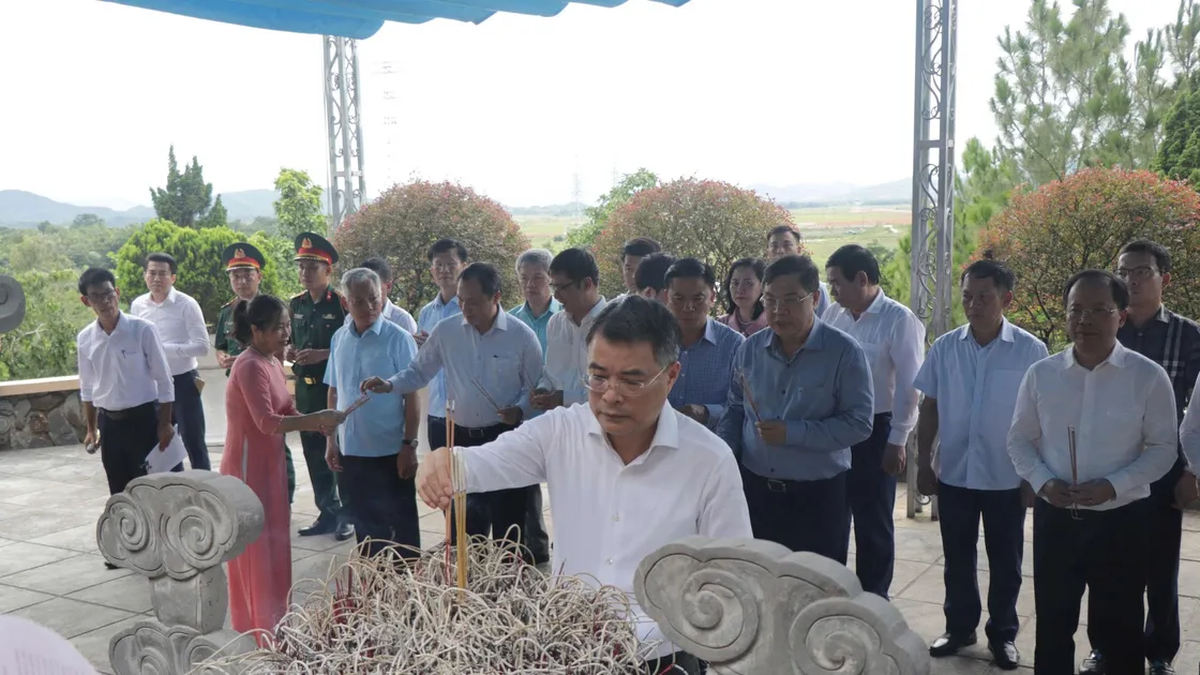
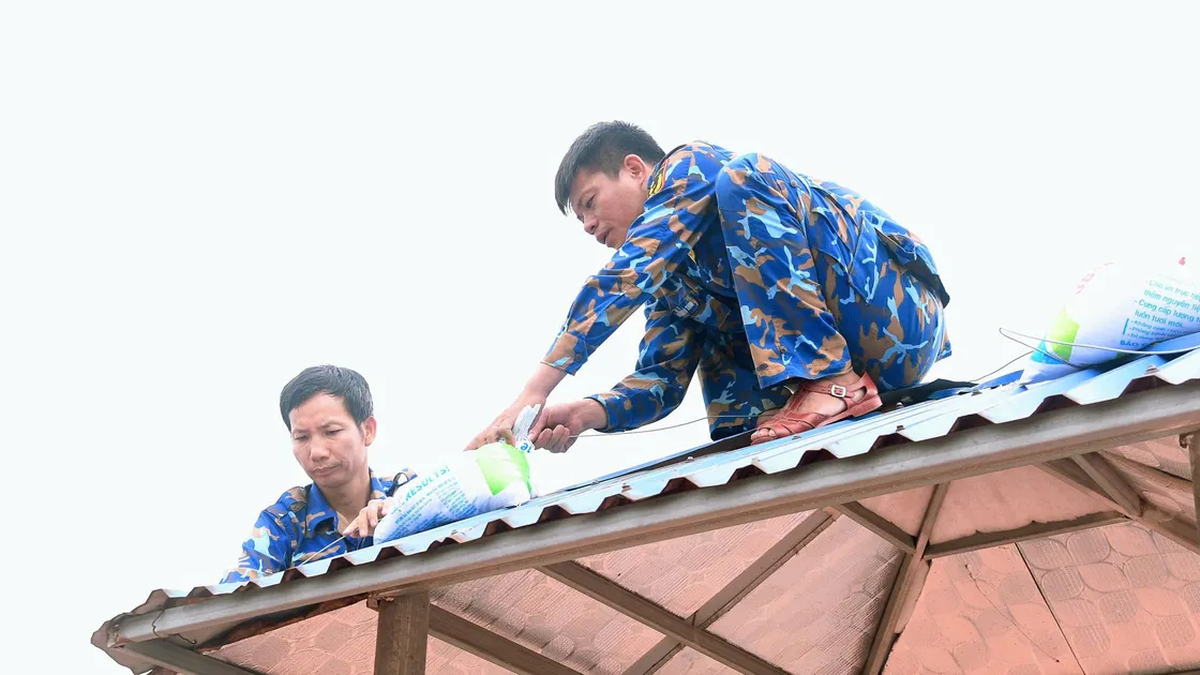
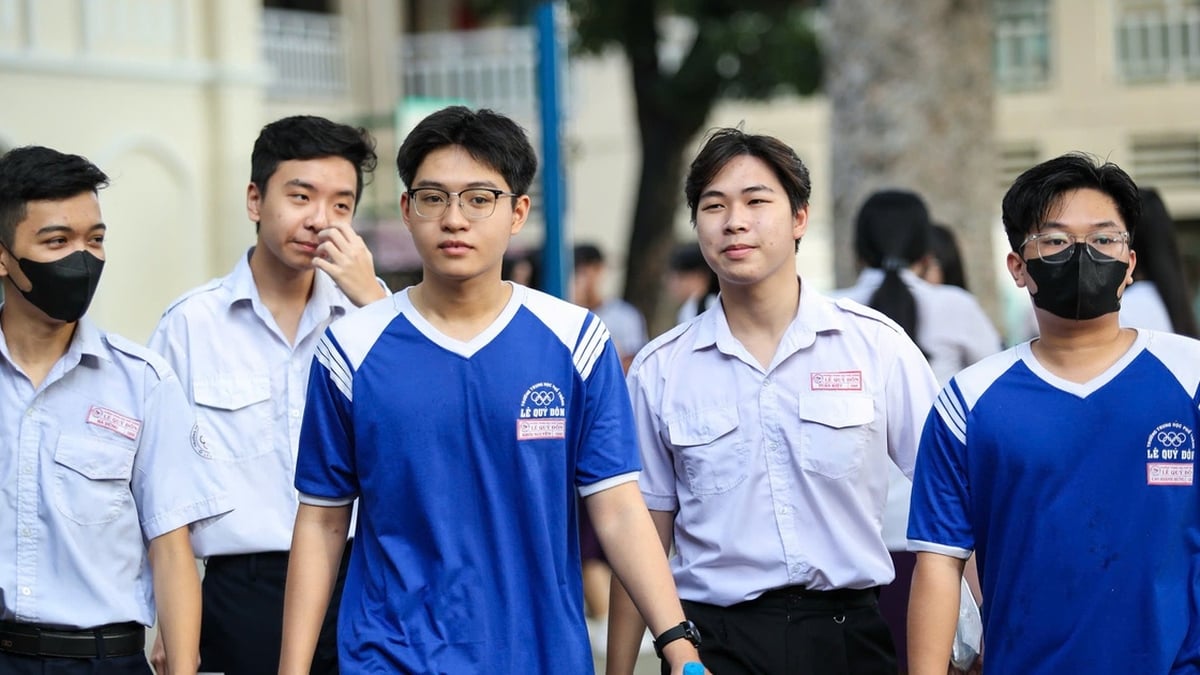
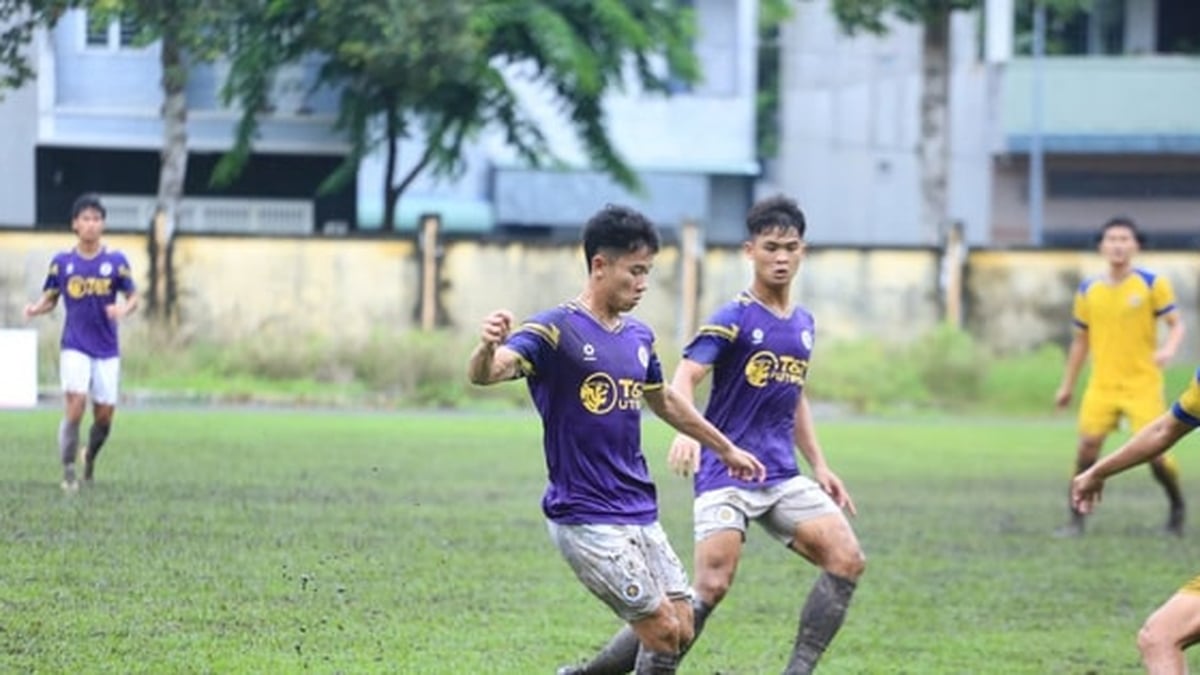
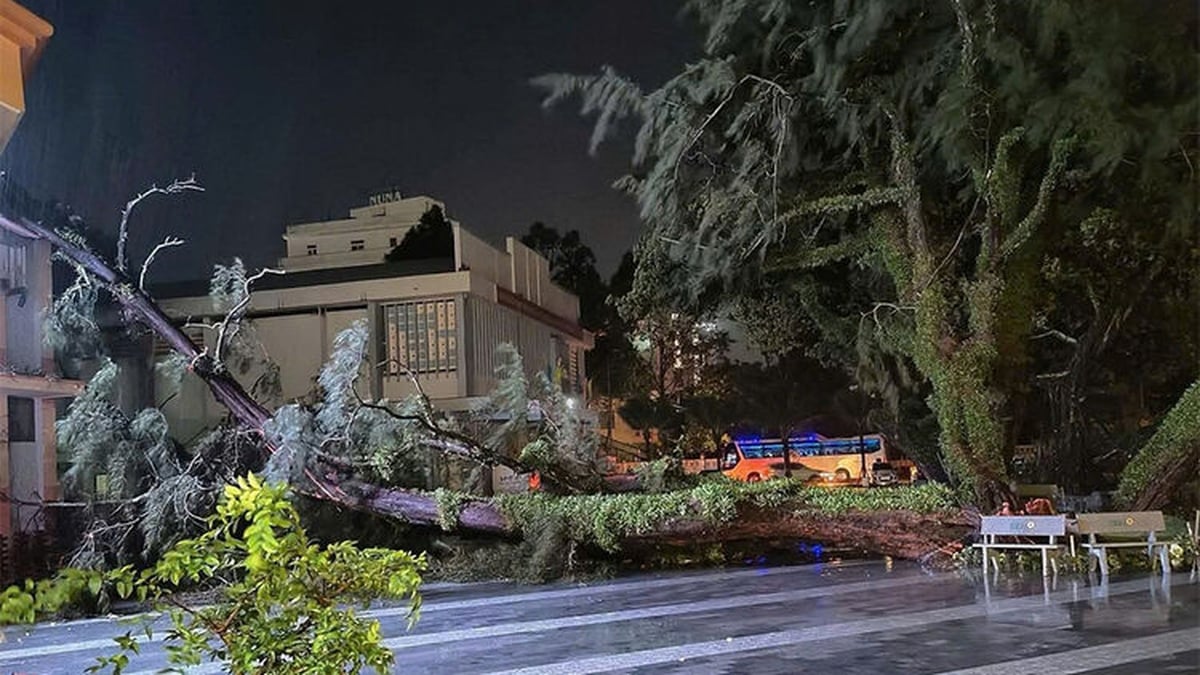

















![[Photo] National Assembly Chairman Tran Thanh Man visits Vietnamese Heroic Mother Ta Thi Tran](https://vphoto.vietnam.vn/thumb/1200x675/vietnam/resource/IMAGE/2025/7/20/765c0bd057dd44ad83ab89fe0255b783)




































































Comment (0)